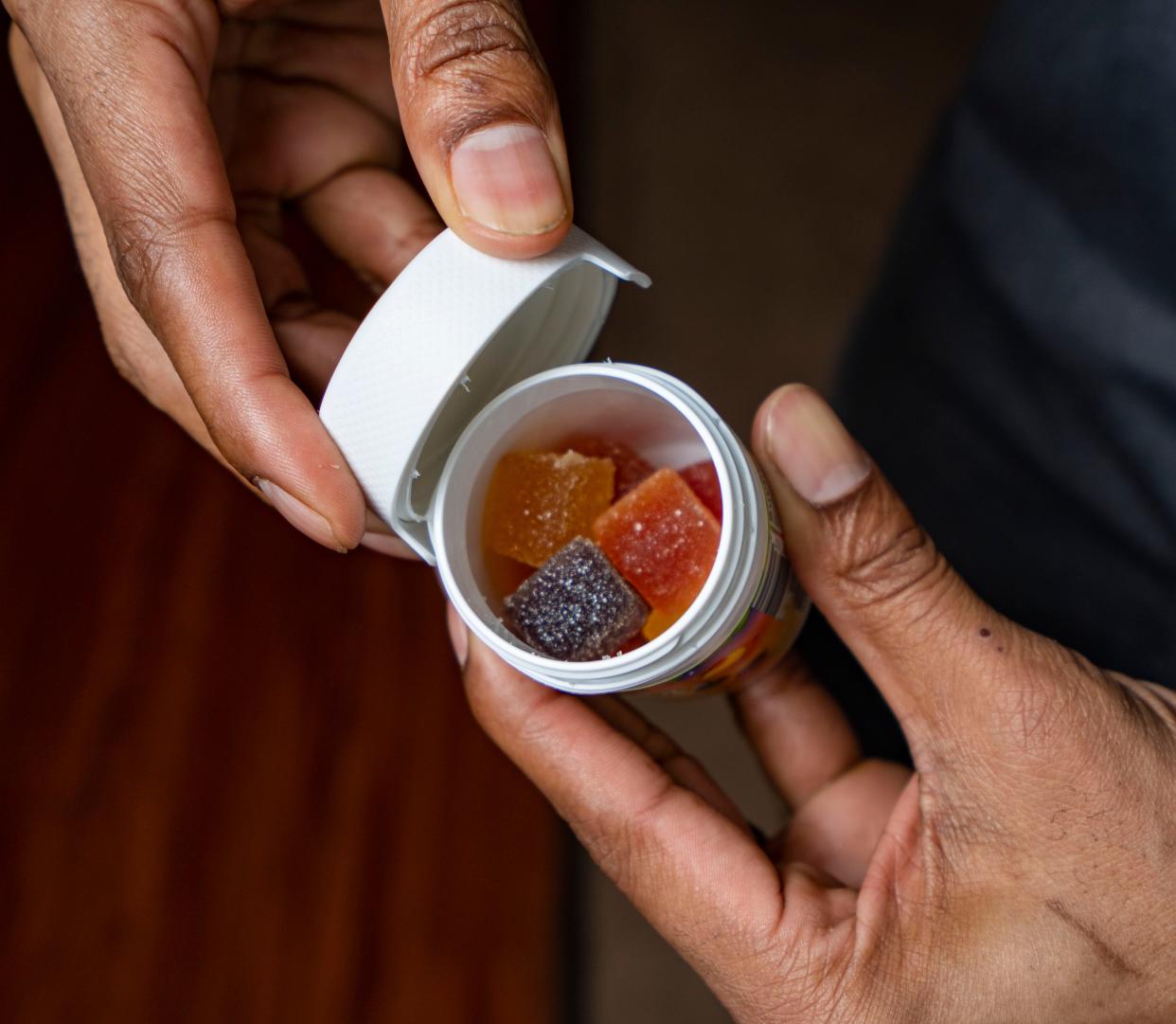Delta-8 THC is legal in Texas. But is it safe? FDA gives warning
Sales are skyrocketing across the U.S. for delta-8 products, a psychoactive substance found in the Cannabis sativa plant. Known as "diet weed" or "weed lite," delta-8 has been found to have similar effects to delta-9 THC, the main intoxicant in marijuana.
Delta-8 is currently unregulated and has been the source of strategic marketing that makes its products appealing to teenagers. According to a national survey of 2,000 high school seniors, more than 11% used delta-8 THC in the past year.
As the sales for delta-8 products have gone up, so have calls to Poison Control. Despite warnings from the FDA, some manufacturers have continued making unproven medical claims about the effects of delta-8 THC.
People are also reading: Is delta-8 safe? As it flies off shelves, thousands call poison control over bad experiences
What is delta-8?
Delta-8 tetrahydrocannabinol, also known as delta-8 THC, is a type of cannabis. It carries a low amount of hemp (0.3%) and, therefore, is permitted under Chapter 443 of the Texas Health and Safety Code. According to the FDA, delta-8 has psychoactive and intoxicating effects; however, it is generally less potent than delta-9. Delta-8 was considered a scheduled one controlled substance but a temporary injunction filed in Travis County has removed the status.

Is delta-8 legal in Texas?
Yes. Though recreational use of marijuana is illegal in Texas and at the federal level, recent state laws have been to decriminalize its use.
In 2019, Gov. Greg Abbott signed House Bill 1325 into law. The law allows the production, manufacture, retail sale, and inspection of industrial hemp crops and products in Texas granted that they stay at 0.3% or less delta-9 THC level. This also includes products for consumable hemp products that contain cannabidiol (CBD), as well as other edible parts of the hemp plant.
Depending on how much a person is in possession of, the consequences vary. The Texas Health and Safety Code states that possession of marijuana two ounces or less is considered a Class B misdemeanor.
People are also reading: Marijuana laws in Texas are confusing. Here's a guide to know what is and isn't legal
Is delta-8 safe?
Delta-8 THC products have not been evaluated or approved by the FDA. The administration warns that how such products are marketed can put public health at risk. Delta-8 THC has proven especially dangerous for children and pets.
Patrick Cournoyer leads the FDA’s cannabis product committee. He told USA TODAY the prevalence of psychoactive hemp products was a “major public health issue.”
“It’s a big human guinea pig experiment with a lot of these substances,” Cournoyer explained. “And that, of course, in and of itself, should be alarming.”
Regulators and scientists have also raised concerns about the possible contamination or adulteration of hemp-derived products due to synthetic processing and lack of regulatory requirements.
Delta-8 vs delta-9
Delta-9 gets its name from the fact that it has 9 THC molecules. Delta-8 THC and delta-9 THC come from the cannabis sativa plant. Unlike CBD, delta-9 THC is psychoactive, which means it can make you feel high or intoxicated. Delta-9 THC is the main intoxicant in marijuana.
Graphic by Bill Schulz / Milwaukee Journal Sentinel
What’s the difference between THC and CBD?
Cannabidiol (CBD) is a substance derived from the cannabis plant that does not have the psychoactive properties that tetrahydrocannabinol (THC) does. In other words, THC is what someone consumes to get “high” or intoxicated, while CBD does not possess the same chemicals.
This article originally appeared on Austin American-Statesman: What is delta-8 THC and is it safe? FDA gives warning as sales rise
